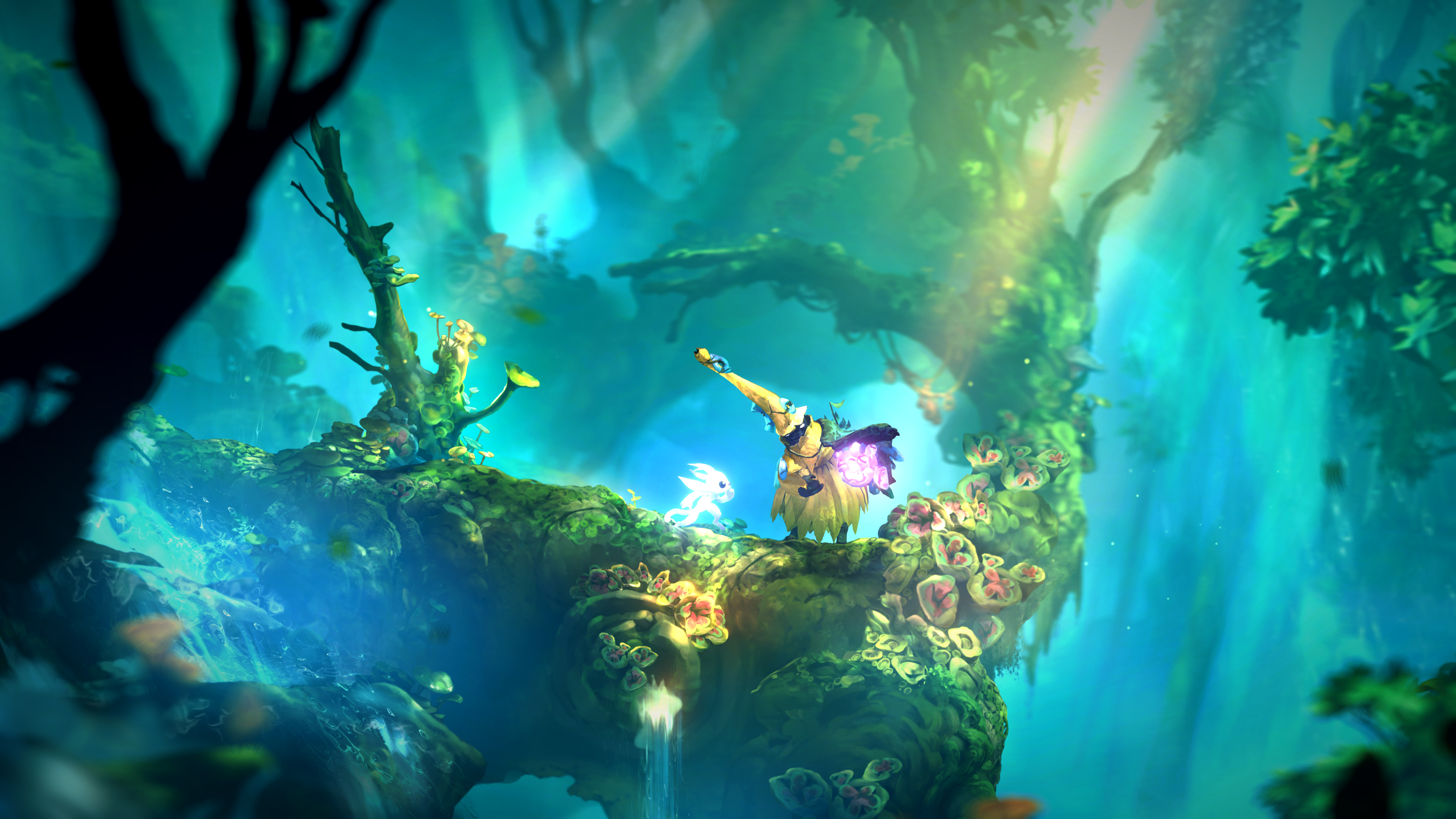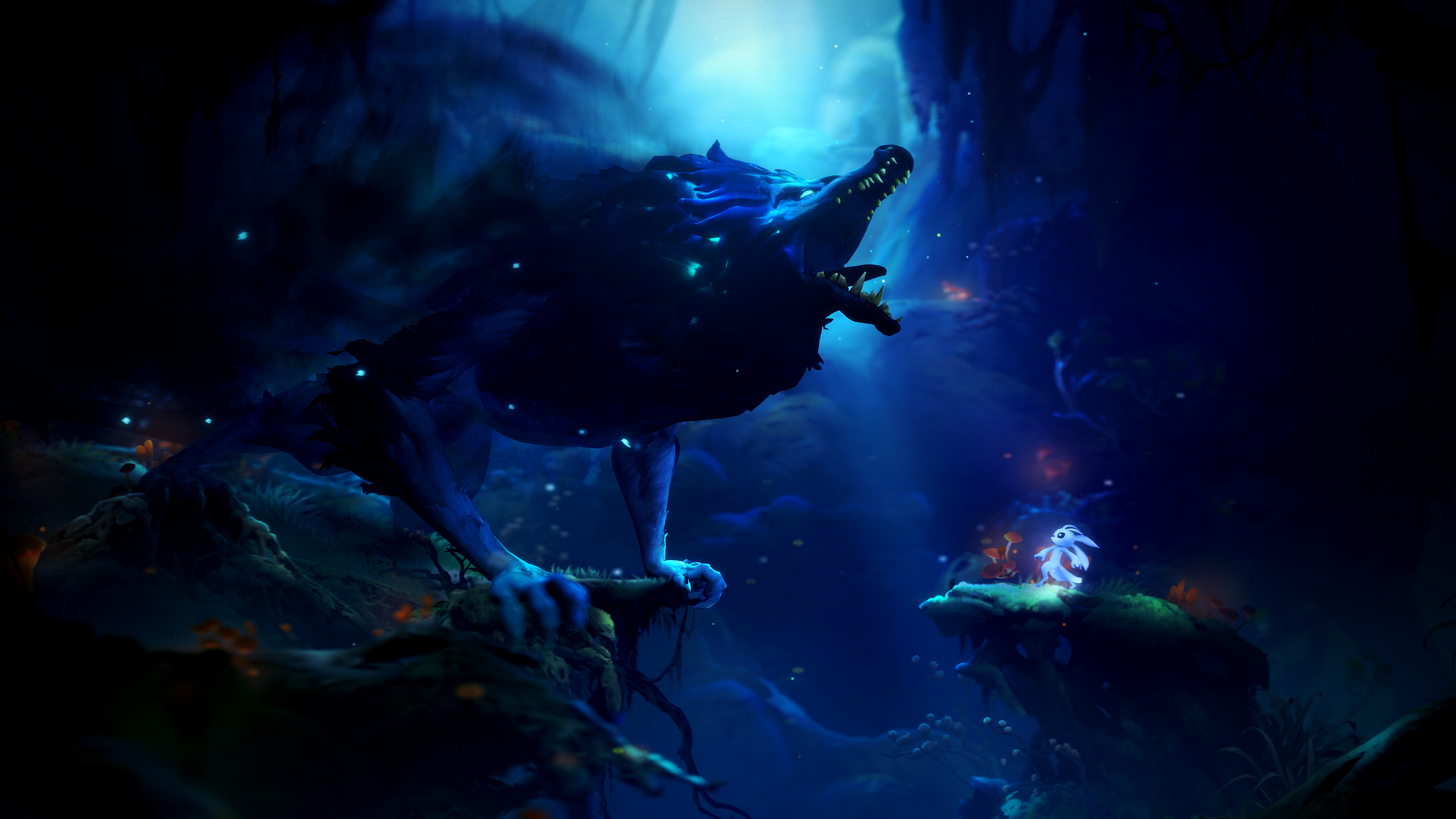“You know when you suddenly realize that [a] particular moment in time can actually completely affect the rest of your life?”
Milton Guasti’s newfound career making video games is a tale of two accidents. The first was a threatening letter from Nintendo because he’d made a Metroid game that looked too good, too much like an official game. The second was an invitation to audition for a dream, just not a dream he’d had yet. Now, in the space of four years, Guasti has gone from seeing his labor of love shut down to being on the verge of shipping his first game, Ori and the Will of the Wisps. And this one that can’t disappear because our copyright laws are broken.
The road to this point was full of unexpected twists, and it starts with there being few companies more legally precious about their creations than Nintendo. The more impressive the work, the more likely they are to take notice. One way I’ve seen creators put it: if you get a Kotaku article, it’s over. It was hardly a surprise, then, when designer Milton “DoctorM64” Guasti received a notice from Nintendo to stop working on Another Metroid 2 Remake ( AM2R), an ambitious overhaul of the company’s 1991 Metroid sequel for the Game Boy.
In an ominous blog called “no future for AM2R,” Guasti gave in to Nintendo’s demand. Fans might have been outraged at Nintendo’s decision, but Guasti largely shrugged and moved on. Game development had always been a hobby, and AM2R had been a way for Guasti to teach himself new techniques. Though his Metroid work was behind him, he’d already downloaded Unity, and was beginning to think about making an original Metroid-style game.
Maybe the outsized response to AM2R could lead to some Kickstarter dollars headed his way? At least, that was the plan until an unexpected email showed up in Guasti’s inbox.
“I was just minding my own business one day at the office,” he told me recently. “And suddenly, I got this mysterious email from some famous guy that I actually didn't know. My reaction was, ‘Hmm, okay, either someone is pretty crazy about trolling me, or this is legit?’”
That email was legitimate and from someone at Moon Studios, developers of Ori and the Blind Forest, a Metroid-style game celebrated for its beautiful art and tight mechanics. At the time, Moon Studios was deep into developmenton on a sequel, Ori and the Will of the Wisps.
Guasti’s life was about to change, but first, he needed to pass a test. Moon Studios was interested in talking to Guasti, but it wasn’t a job offer without hoops to jump through first. Guasti had to design a level for Ori to prove he could think outside the world of Metroid. He didn’t make AM2R to land a professional job making games, and now suddenly, he was being asked to make a brand-new level on a time crunch for a dream he didn’t know he had.
While Guasti was making AM2R, he didn’t play a lot of video games.
“The cool thing is, once I got the DMCA with AM2R, suddenly I had this concept having free time?,” he laughed. “It's amazing.”
So he played a lot of games, including a lot of Metroid-style games. Axiom Verge. Guacamelee. And, of course, Ori and the Blind Forest. He found the artwork and story very touching, and openly hoped “someday I could actually do something like these people do.”
It worked out, and for the last few years, Guasti has been designing levels for Ori and the Will of the Wisps. The game has taken a little longer than expected—-announced in 2017, scheduled for a release in 2019, and eventually delayed into early 2020—but it’s finally arriving on March 11. This time, a legal letter from Nintendo won’t be able to stop him.

“That mixture of fear and excitement,” he said, when asked about how he’s feeling. “And really, really looking forward to seeing the joy of people streaming the game, and having those super emotional moments and the rage of throwing controller against the screen.”
Instead, Guasti is nerve-wracked over the idea of the game coming out after so long and having a game-breaking bug. With Ori and the Will of the Wisps, he’s a cog in the larger development machine. In the frantic leadup to AM2R, a bug was discovered 30 minutes before the game was due to launch. A final version of AM2R was eventually uploaded only a few minutes before it went live, and players chewed through more than a terabyte of data trying to download it.
Working on Ori and the Will of the Wisps was an adjustment for a lot of reasons. In working on AM2R, Guasti became very, very familiar with Metroid’s approach to designing levels: blocky, rigid, full of hallways. The architecture is often simple, and tries to communicate to the player cleanly and plainly. Ori, however, is lush and chaotic. There’s more going on.
“My very first iterations of the levels were blocky and felt artificial,” he said, “and having to learn this new design language and seeing what the actual place is, instead of just a collection of random platforms, that took a little bit of time. It was quite a discipline. I ended up working a lot more with Photoshop [and] imagining how trees were going to be collapsing, and having some branches that are going to be acting as platforms, and how the platforms that need to be there for gameplay could not be suspended magically in midair, but had to have some support in the background layer.”
There was a confidence issue, too. When Guasti joined the team, Ori and the Will of the Wisps was already pretty far along. He wasn’t joining a team that was starting from scratch, but being asked to pitch in ideas for something they’d already invested a lot of time into. Who was he to tell them he had better ideas, that something they’d done wasn’t perfect?
But, of course, he did have ideas. The moment he saw the map, he was identifying ways to improve the flow, the way the player would navigate through the space. He remained quiet.
Then, during a meeting where the team was discussing the first few hours of the game, a crucial section where players are introduced to the core mechanics, he was asked a question point blank: “What would you do to actually build this?” He paused, and thought about the time he’d recently spent with Hollow Knight, a game he called “beautifully crafted” but dinged it for having a slow opening. Guasti didn’t want this game to have a slow opening, and suggested Ori and the Will of the Wisps focus on movement tools, instead of puzzles.
The team nodded in agreement, and other started to pitch in ideas. That version of the opening, the one Guasti contributed to, is the version that’ll be in the game coming out.
“Having to work with a team that actually listens to you,” he said, “it’s super, super awesome.”

Even the notion of a “team” was basically new. AM2R was mostly a solo project, though he did collaborate with others as time went on. Everyone was a volunteer using their free time.
“Imagine this kind of workflow,” he said. “So I get back from home, take a shower, have a snack. My family goes to sleep. I sit down here, I put [on] my game developer hat. And once I have a couple of ideas for AM2R, I get in touch with the artists, the volunteers, whatever is available, and I say “Well, I have a proposal for making a new sprite for an enemy. How many weeks is this going to be taking you to actually make a prototype?’”
With Ori, the same requests are “measured in hours, depending on who’s awake.”
Guasti touched a lot of different parts of Ori and the Will of the Wisps, though he mentioned being especially proud of the game’s elaborate “escape” sequences, where the player has to put together everything they’ve learned in an area and try to make it out before they die.
As for the original Metroid-style game he’d been toying with in his free time, that’s on pause.
“Going full time as a game developer makes your free time not to focus that much on video games, right?” he said. “So usually in my free time, I go with my daughter and force her to not play with the tablet anymore. And we just enjoy playing with toys—real-life toys. The usual tea party with ponies and other small action figures.”
With one caveat, naturally: they like to co-op Minecraft, with Guasti having built a world where he’s placed various signs to help his eight-year-old daughter with her reading lessons.
Chances are they’ll be playing Ori and the Will of the Wisps together, too.
Follow Patrick on Twitter. His email is patrick.klepek@vice.com, and available privately on Signal (224-707-1561).
from VICE https://ift.tt/39dojmJ
via cheap web hosting
No comments:
Post a Comment